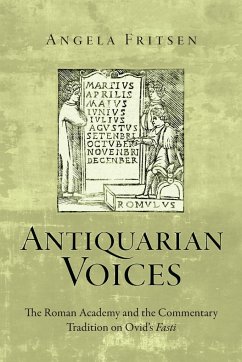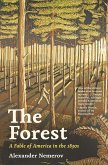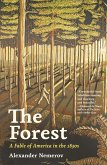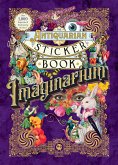Ovid's Fasti, his poem on the Roman calendar, became especially influential during the fifteenth century as a guide to classical Roman culture. Ovid's treatment of mythological and astronomical lore, his investigation of anniversaries and customs, and his charting of monuments and history offered humanist poets and intellectuals an abundance of material to unravel. They could identify with Ovid as vates operosus, or hard-working seer-poet, suggesting both researcher and inspired authority. Angela Fritsen's Antiquarian Voices:The Roman Academy and the Commentary Tradition on Ovid's Fasti offers the first study of the Renaissance exegesis and imitation of Ovid as antiquarian. Fritsen analyzes the Fasti commentaries by Paolo Marsi (1440-1484) and Antonio Costanzi (1436-1490) as well as the connections between the two works. It situates Ovidian Fasti studies in the Roman Academy under the mentorship of Pomponio Leto. Nowhere could the investigation of the Fasti be carried out better than in Rome. The humanists had a guide to the City in Ovid. They also regarded the Fasti as well suited to the ideology of the ancient Roman imperium's renewal in modern papal Rome. Antiquarian Voices illustrates how in reviving the Fasti, the humanists returned Rome to its original splendor. The book demonstrates that the humanists were eager to relate the Fasti to their antiquarian pursuits-as well as to their rising personal fame.
Hinweis: Dieser Artikel kann nur an eine deutsche Lieferadresse ausgeliefert werden.
Hinweis: Dieser Artikel kann nur an eine deutsche Lieferadresse ausgeliefert werden.








